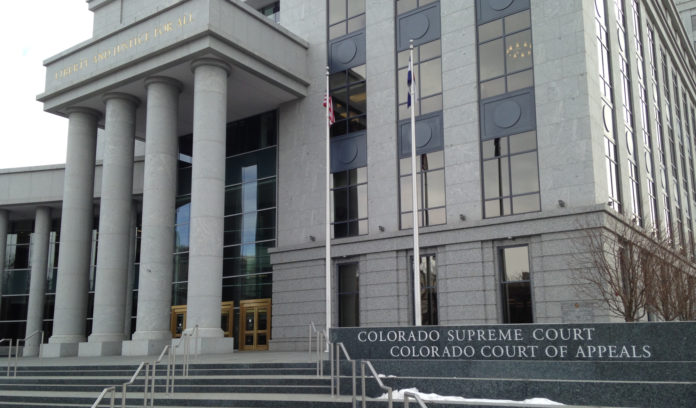
The Colorado Supreme Court will hear oral arguments for six cases from Oct. 17-26.
One of the cases, Johnson Family Law, P.C. v. Bursek (case no. 2022SC497), involves the departure of a lawyer from a firm and fees. According to the Colorado Court of Appeals opinion for the case, when an attorney leaves a firm, it can cause financial strain and to protect its commercial interest, a firm could contractually impose restrictive covenants on the departing attorney. Concerns arise, however, that the agreement could run afoul of Colorado Rule of Professional Conduct 5.6(a) which prohibits agreements that restrict an attorney from practicing, the appeals court added.
The appeals court noted courts have held Rule 5.6(a) prohibits agreements that directly restrict an attorney’s right to practice, but leads to the question: what about financial disincentives that may indirectly do so?
The appeals court explored whether an agreement imposing a fee on a departing attorney for each client that departs with him violates Rule 5.6(a). The appeals court concluded such a fee could violate the rule, but only if it’s unreasonable under the circumstances. The appeals court also found a contractual provision violating Rule 5.6(a) is necessarily void as against public policy.
In the appeals court case, Johnson Family Law, P.C., doing business as Modern Family Law, appealed the district court’s order finding its agreement with a former associate attorney, Grant Bursek, violated Rule 5.6(a) and was unenforceable. The appeals court concluded the agreement’s imposition of a $1,052 fee per client who departed with Bursek was unreasonable and agreed with the district court that the fee violated Rule 5.6(a).
The appeals court disagreed the violation rendered the entire agreement unenforceable and concluded only the provisions imposing the fee were void. The appeals court affirmed in part and reversed in part.
One of the issues before the Colorado Supreme Court in this case is whether the Colorado Court of Appeals erred in concluding a law firm could contractually require a departing lawyer to pay a fee for each client the attorney took with them.
Other Cases
Five other cases will be heard before the state high court in October including Gregory v. Safeco Insurance Company of America (case no 2022SC399) and Runkel et al. v. Owners Insurance Company (case no 2022SC563). Both of those cases focus on the same issue: “Whether the notice-prejudice rule applies to homeowner’s property and casualty insurance policies.”
Other cases before the high court include Martinez v. People (case no. 2022SC272), City of Aspen v. Burlingame Ranch II Condominium Owners Association, Inc. (case no. 2022SC293) and County of Jefferson v. Stickle (case no. 2022SC632).
All of the cases will be heard Oct. 17 except for County of Jefferson v. Stickle and Martinez v. People. Those will be part of a Courts in the Community event at Gateway High School in Aurora, Colorado, Oct. 26.
According to the Colorado Judicial Branch website, the program serves the purpose of educational outreach which started back in 1986, with the aim of giving high school students a hands-on experience to learn about how the state’s judicial system works and how disputes are resolved.
The Colorado Court of Appeals will host Courts in the Community events Nov. 7 and Nov. 9 in Carbondale and Frisco, Colorado.

